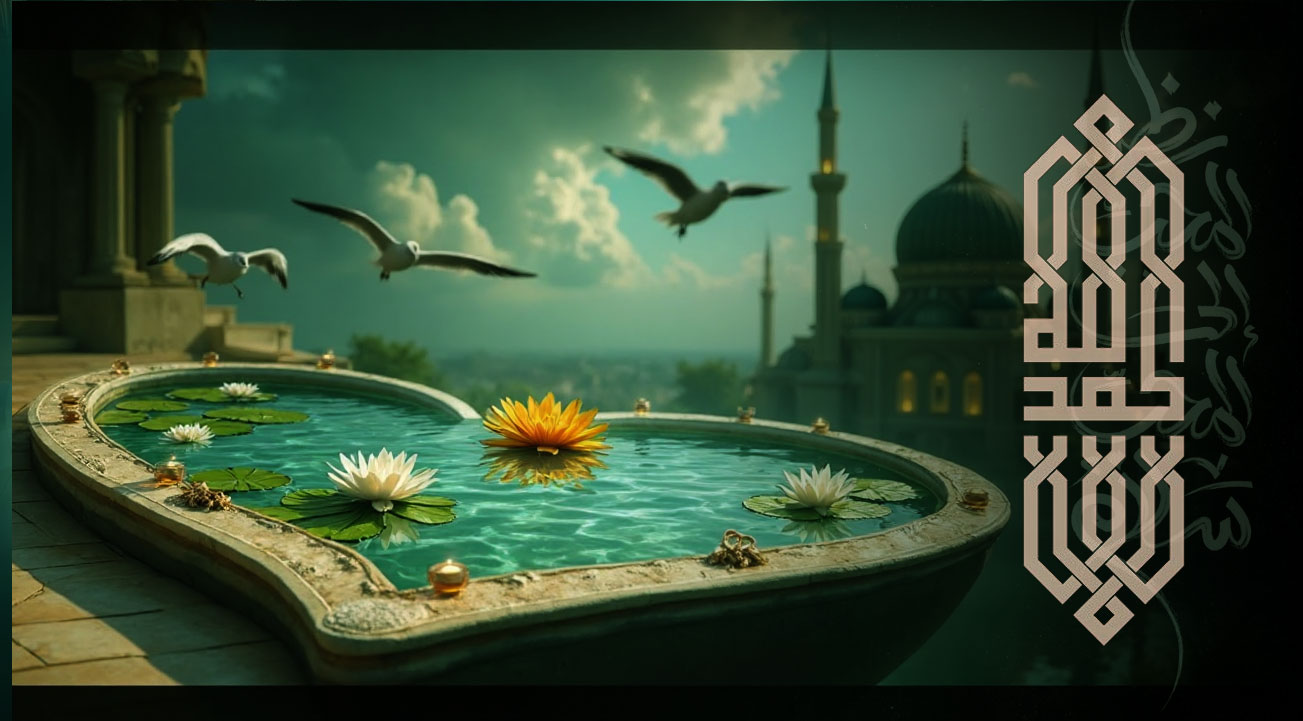For many Muslims, prayer can become routine. A habit performed five times a day, whispered quickly, rushed through, squeezed between meetings and meals. Over time, something so sacred can quietly lose its soul.
But prayer—Salaat—was never meant to be a hollow routine. It was never meant to be just a checklist. It was meant to be a reunion. A moment of reconnection between the created and the Creator. A return of the heart to the One who shaped it.
From Ritual to Relationship
A ritual is often something done out of obligation. It’s performed by the body. But a reunion? That’s different. A reunion is awaited, cherished, emotional. It is something the heart longs for.
When the Prophet Muhammad ﷺ described prayer, he didn’t speak about obligation first. He said:
“The coolness of my eyes is in prayer.”
(Sunan An-Nasa’i)
This was not ritual. It was refuge. Not just duty—it was delight.
The Prophet ﷺ found joy in prayer. Not because he had to—but because his heart yearned to be with Allah.
The Real Purpose of Prayer: Remembrance
In the Qur’an, Allah says:
“Establish prayer for My remembrance.”
(Surah Ta-Ha 20:14)
He doesn’t say: “Pray to fulfill your obligation.” He says: pray to remember Me.
Why? Because in forgetting Allah, we forget ourselves. We forget our purpose, our direction, our peace.
Prayer is the anchor that keeps the soul from drifting into anxiety, confusion, and worldly obsession.
What Are You Really Saying in Prayer?
Let’s go back to the first words you say in every prayer:
Allāhu Akbar – God is Greater.
Not “the greatest”—but greater. Greater than what? Everything.
- Greater than your stress.
- Greater than your pain.
- Greater than your deadlines, your desires, your fears.
Prayer is a moment where you leave everything behind and say, “Nothing matters more than this moment with You, O Allah.”
Rushed Prayers: A Missed Meeting
One of the greatest tragedies is to stand before Allah and not even be present.
The Prophet ﷺ warned:
“A person may pray and receive only one-tenth, one-ninth… even just one-tenth of the reward, depending on how much focus they had.”
(Abu Dawood)
Imagine being invited to a meeting with a king—and showing up distracted, yawning, glancing at your phone. That would be rude.
Yet, how often do we stand before the King of kings, and our hearts are elsewhere?
Let’s not just perform prayer. Let’s attend it. Let’s feel it. Let’s be fully there.
Reuniting the Heart in Every Rak‘ah
Every unit of prayer (rak‘ah) is a chapter of this reunion. Let’s look at it through the lens of love, not law:
- Takbeer (Allāhu Akbar): You begin by declaring, “I’m here. Nothing is greater than You.”
- Al-Fātiḥah: You speak directly to Allah. It’s not recitation—it’s conversation.
- Rukū‘ (Bowing): Your ego bends. You say, “Glory to my Lord, the Most Great.”
- Sujood (Prostration): You fall into love. The forehead touches earth, but the heart touches heaven.
- Tashahhud (Sitting): You bear witness. You testify to your loyalty.
- Salām: You return to the world, but you’re different now—lighter, cleaner, closer to the Divine.
Each movement is not arbitrary. Each word is not random. It is a script of love, written by the One who made your heart.
You Are Being Heard
In every prayer, Allah is listening.
“I respond to the call of the one who calls Me…”
(Surah Al-Baqarah 2:186)
He hears even the whispers you don’t say out loud. The tears you hide. The confusion you can’t articulate.
You don’t need perfect Arabic.
You don’t need eloquence.
You just need presence.
Even the silent longing in your heart is a prayer.
Prayer as Healing
Prayer is not just a spiritual act. It is emotional healing. It is psychological calm. Studies have even shown that regular prayer lowers stress and anxiety.
But even more profoundly, prayer:
- Trains discipline by pausing life five times a day.
- Reorients the soul toward the eternal.
- Restores dignity through divine connection.
- Softens the heart, making it fertile for compassion.
Every sujood softens what life has hardened.
You Don’t Have to Be Perfect to Pray
Many people think, “I’ve sinned too much to stand before Allah.”
But the opposite is true.
Prayer is not for the perfect. It’s for the imperfect longing to return. The door of prayer is always open.
Shaykh Abdul Qadir Jilani said:
“Do not let shame prevent you from returning to prayer. It is not for the sinless, but for those seeking the One who forgives.”
Reunion, Five Times a Day
Why five prayers? Because we forget—often.
We get distracted.
We get pulled away.
We get tired.
But Allah, in His mercy, calls us five times—to return.
Not to check a box. But to find peace again. To find Him again.
🌙 Rediscover Your Salaat
If you’ve been praying without feeling—start again.
You don’t need a new place, or new clothes. You just need a new intention.
Before each prayer, whisper in your heart:
“O Allah, this time… I want to meet You.”
And you will. In that moment, when you bow, when you whisper Allāhu Akbar—you will find a love deeper than the world.
📘 Want to Deepen Your Understanding of Prayer and Faith?
We highly recommend:
The New Muslim Guide by Jamil Ahmed Sukhera
It’s an essential resource for:
- New Muslims seeking clarity and confidence in practice
- Anyone who wants to reconnect with the spiritual meaning behind Islamic acts
- Believers ready to transform prayer into a source of joy, not burden
🕌 Click here to view or download the book
(Please provide a shareable or uploaded link to enable this feature)


Sorry no comment yet.
Leave a comment